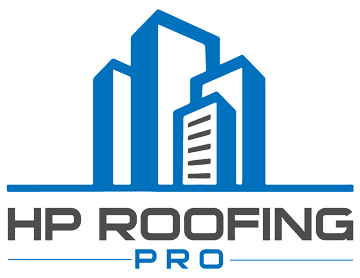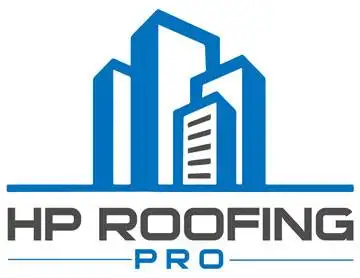Mon - Fri 7:00 am - 4:30 pm
601 South Palm Avenue, 91803 Alhambra US
Posted by thomas ferriere No Comments on Everything You Need to Know About Industrial Roofing Roofing
Everything You Need to Know About Industrial Roofing
The roofing market in the US was worth around $26 billion in 2020. Analysts expect continued growth over the next five years.
Your industrial roof is a critical part of your business. After the challenges of the last year, now is the time to reinvest in your roof.
You have many types of roofing to choose from. Learn more about industrial roofing so you can pick the best roof for your business.
Types of Industrial Roofing
Many industrial roofs are single-ply membranes. Single-ply membrane roofs can be TPO, PVC, or EPDM. Other common types of roofing for commercial buildings are built-up roofing, modified bitumen, and metal.
Thermoplastic Polyolefin (TPO)
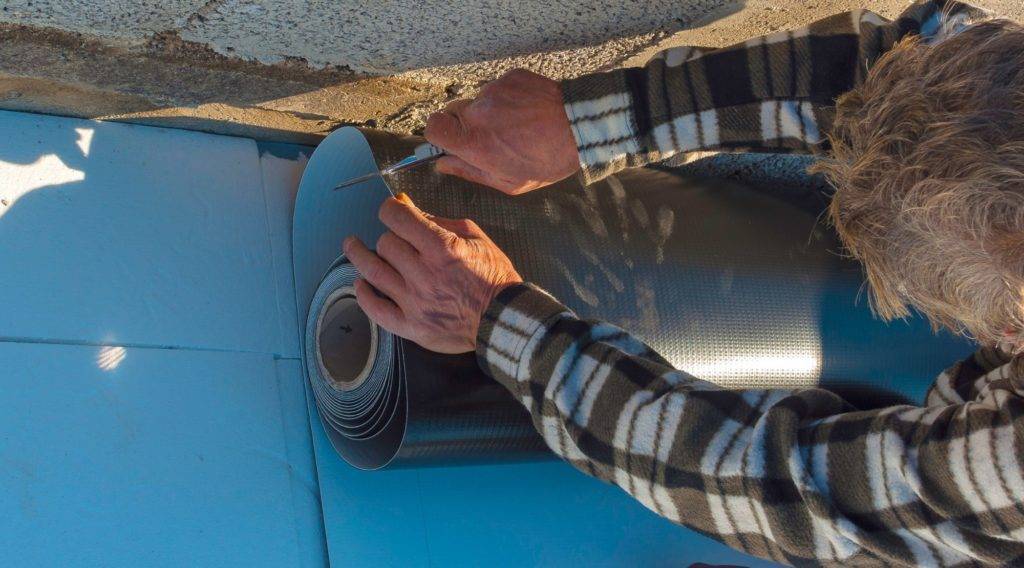
Thermoplastic Polyolefin (TPO) roofing represents a cutting-edge advancement in single-ply membrane technology. Characterized by its lightweight composition and high solar reflectance, TPO is engineered to deliver both efficiency and durability. The material’s robustness is underpinned by its exceptional resistance to various environmental stressors, including fire, wind forces, and ultraviolet (UV) radiation.
The molecular structure of TPO, a blend of polypropylene and ethylene-propylene rubber, endows it with unique physical properties. Its heat-weldable seams create a monolithic, watertight layer that significantly enhances its waterproofing efficacy. Furthermore, TPO’s high reflectivity contributes to reduced heat absorption, thereby aiding in the lowering of cooling costs and mitigating the urban heat island effect.
A notable advantage of TPO roofing is its resistance to chemical exposure, particularly to oils and fats. This characteristic makes it an optimal roofing solution for facilities such as restaurants, where emissions from ventilation systems often contain these substances. TPO’s resistance to oil and fat degradation ensures longevity and performance consistency in such environments where other roofing materials may fail or deteriorate rapidly.
Additionally, TPO membranes are available in various thicknesses. They can be mechanically attached, fully adhered, or ballasted, offering flexibility in application depending on the building’s specific structural and climatic needs. The choice of installation method and membrane thickness are critical considerations in maximizing the roof’s lifespan and performance, particularly in areas prone to extreme weather conditions.
Polyvinyl Chloride (PVC)
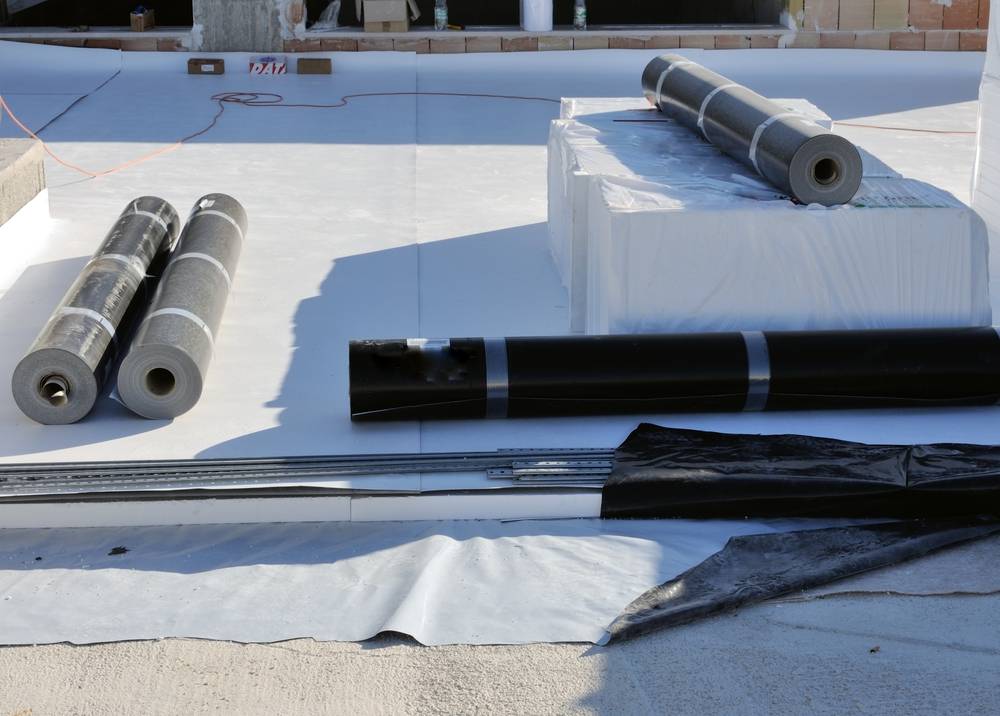
Polyvinyl Chloride (PVC) roofing systems represent a significant segment of the single-ply roofing market, known for their robustness and stability. PVC roofing membranes are engineered from a complex formulation that includes plasticizers for flexibility, UV stabilizers, and other additives to enhance performance characteristics.
A critical aspect of PVC roofing installation is the heat welding of seams. This technique fuses the membrane sheets together, forming a continuous, watertight layer that is integral to the roof’s overall performance. The welded seams also confer an ability for the PVC membrane to accommodate the thermal expansion and contraction of the building structure, an essential feature in maintaining structural integrity and longevity.
PVC’s composition gives it a high resistance to a range of chemical agents, making it an ideal choice for industrial environments or facilities that are exposed to aggressive chemicals. Additionally, its inherent fire resistance and excellent performance under UV radiation are pivotal in ensuring both the safety and durability of the roofing system.
However, compared to other single-ply options like Thermoplastic Polyolefin (TPO) or Ethylene Propylene Diene Monomer (EPDM), PVC roofing tends to be at a higher price point. This cost differential is often justified by its superior performance characteristics, particularly in demanding environments. PVC roofing membranes are available in various thicknesses and can be tailored to specific building requirements, including energy efficiency, reflectivity, and resistance to punctures and tears.
Given these attributes, PVC roofing is a viable option for commercial buildings requiring a durable, chemically resistant, and long-lasting roofing solution, albeit with a consideration for a higher initial investment.
Thermoset (EPDM)
Ethylene Propylene Diene Monomer (EPDM) roofing systems, a category within the thermoset membrane family, are esteemed for their balance of performance, ease of installation, and cost-effectiveness in the single-ply roofing market. EPDM is a synthetic rubber compound recognized for its superior elasticity and durability under varying environmental conditions.
The installation process of EPDM roofing is streamlined due to its large sheet sizes and relatively straightforward seaming techniques, which can include adhesive bonding, tape systems, or mechanical fastening. This simplicity translates into reduced labor costs and shorter project timelines. Maintenance and repair of EPDM roofs are also less labor-intensive than other roofing types, further enhancing its economic viability.
A notable strength of EPDM roofing lies in its outstanding resistance to environmental factors. The material inherently withstands prolonged exposure to UV radiation, extreme temperature variations, and fire, ensuring long-term stability and integrity of the roofing system. EPDM’s resistance to a broad spectrum of chemical agents, including certain acids, solvents, and alcohols, makes it suitable for buildings located in chemically exposed or industrial environments.
Regarding cost considerations, EPDM generally represents the most economical option within the single-ply roofing category. Its combination of low initial installation costs, minimal maintenance requirements, and long service life presents a compelling value proposition for commercial buildings.
EPDM roofing membranes are available in various thicknesses and can be either black or white, with the latter offering improved solar reflectance. The choice between black and white EPDM, along with the appropriate thickness and installation method, should be tailored to the project’s specific energy efficiency goals and climatic conditions.
Built-Up
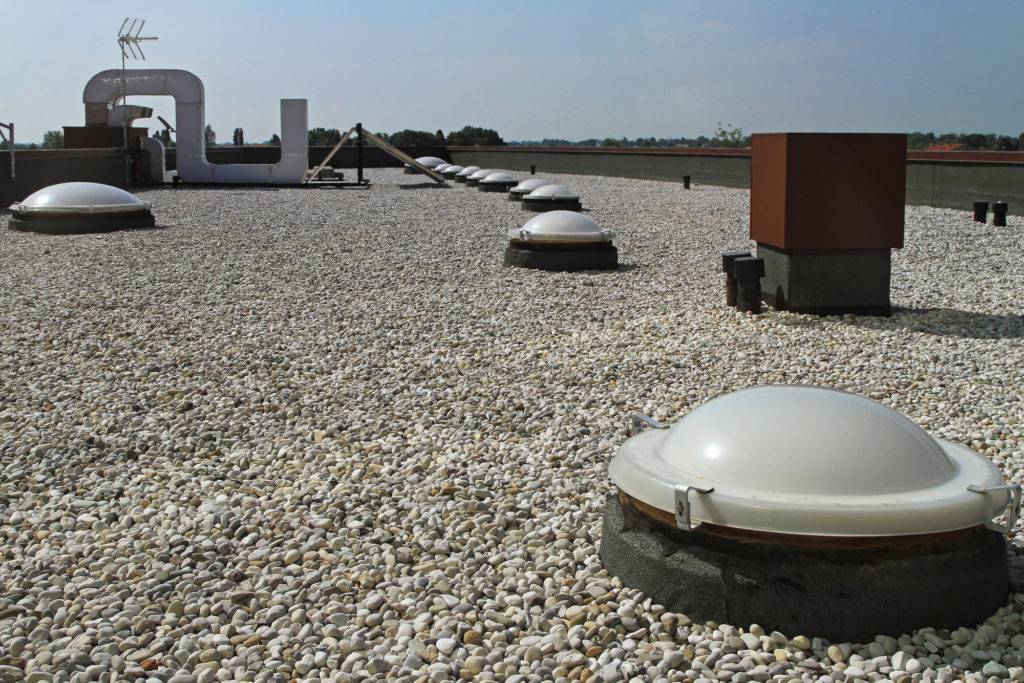
Built-up roofing (BUR) systems, a time-tested method in commercial roofing, derive their nomenclature from their unique multi-layered installation process. This traditional roofing technique involves the sequential application of layers of bitumen (typically asphalt or coal tar pitch) and reinforcing fabrics (such as fiberglass or organic mat felts), culminating in a final layer of aggregate, such as gravel or mineral granules.
Each layer in a BUR system plays a critical role in enhancing the roof’s overall durability and resilience. The bitumen is a waterproofing agent and adhesive, binding the layers together, while the reinforcing fabrics provide tensile strength and dimensional stability. The topmost layer of gravel or mineral granules acts as a protective shield against mechanical wear, UV radiation, and fire, further extending the roof’s lifespan.
One of the hallmark attributes of BUR is its inherent redundancy due to the multiple layers. This redundancy provides a robust waterproof seal, safeguarding the building from water intrusion. Additionally, the layering technique of BUR affords a high degree of puncture resistance, contributing to the system’s overall durability.
From a maintenance perspective, BUR systems are relatively low-maintenance compared to some other roofing options. However, regular inspections and upkeep are crucial to address any wear and tear, particularly in the top layer.
Cost-wise, BUR is often considered a more economical option than some modern alternatives, especially when factors like lifespan, maintenance, and repair costs are considered. The selection of bitumen type, number of layers, and choice of top surfacing material are key factors that influence both the performance characteristics and the cost of a BUR system.
Given these characteristics, BUR systems remain a viable and cost-effective solution for commercial buildings seeking a durable, low-maintenance, and proven roofing solution, particularly in scenarios where roof traffic or mechanical abuse is anticipated.
Modified Bitumen
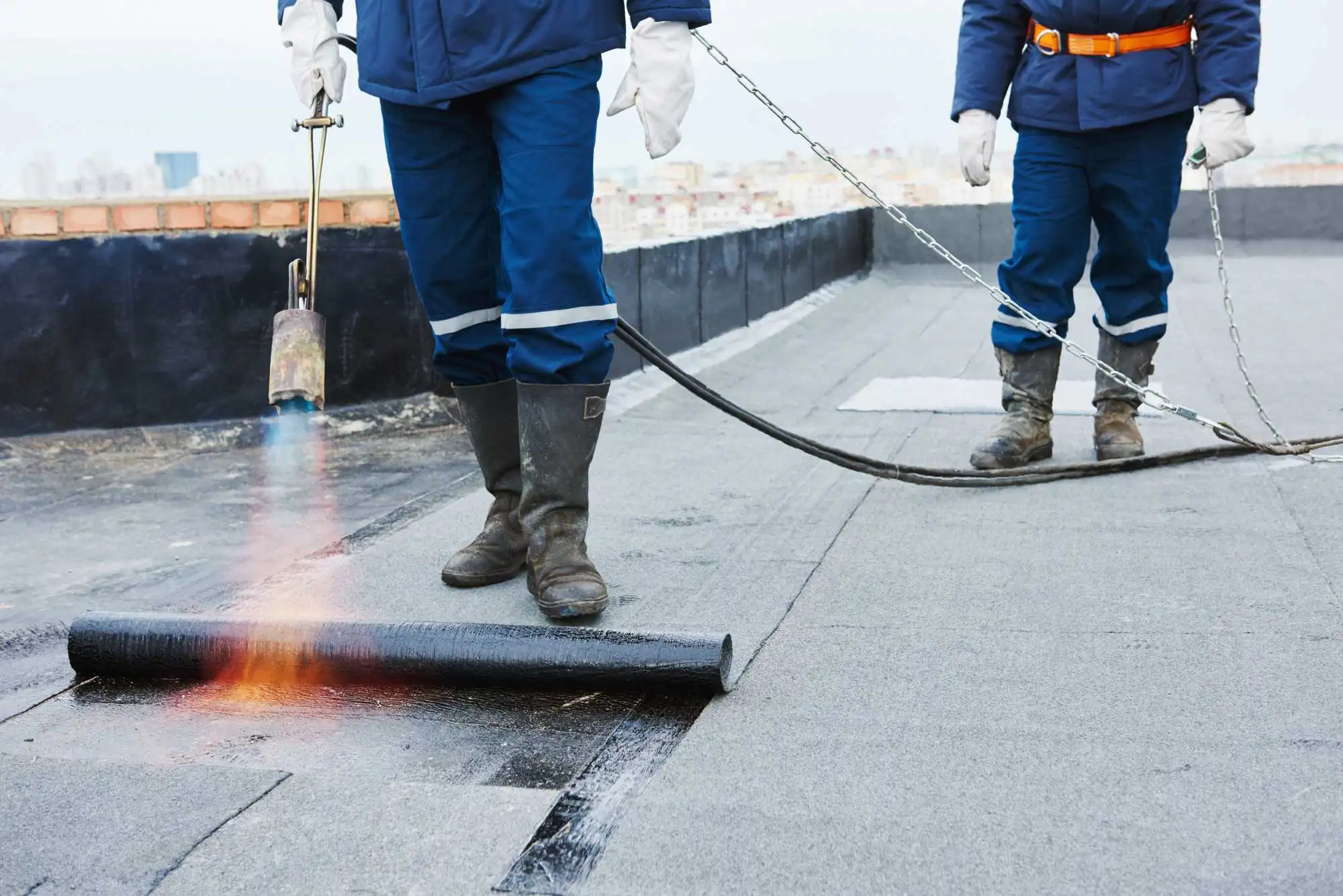
Modified bitumen roofing systems represent a significant advancement in bituminous roofing technologies tailored for enhanced performance and durability. These systems comprise layers of bitumen that have been chemically modified with polymers, such as Atactic Polypropylene (APP) or Styrene Butadiene Styrene (SBS), and then reinforced with either fiberglass or polyester matting. The modification process enhances the bitumen’s physical properties, making it more resistant to environmental factors.
The polymer modification imbues the bitumen with greater flexibility and elasticity, particularly in extreme temperatures. This adaptability is crucial in maintaining the membrane’s integrity and preventing cracking or blistering under thermal stress. The reinforcement layer, whether fiberglass or polyester, adds tensile strength and dimensional stability, contributing to the overall durability of the roofing system.
A key attribute of modified bitumen roofing is its ability to withstand heavy foot traffic. This resilience makes it an ideal choice for commercial buildings where rooftop access is necessary for maintenance, HVAC systems, or other utilities. The system’s robust construction can endure the mechanical stresses associated with frequent foot traffic without compromising its waterproofing capabilities.
Installation of modified bitumen roofing can be conducted via various methods, including torch-applied, cold-applied adhesives, or self-adhering sheets. The selection of installation techniques should align with the specific building requirements and local building codes.
While modified bitumen roofing systems may have a higher initial cost compared to some traditional alternatives, their extended lifespan, low maintenance requirements, and exceptional performance in high-traffic scenarios often translate into long-term cost savings.
Modified bitumen roofing systems offer a durable, flexible, and traffic-resistant solution, well-suited for commercial applications where rooftop durability and access are paramount considerations.
Metal
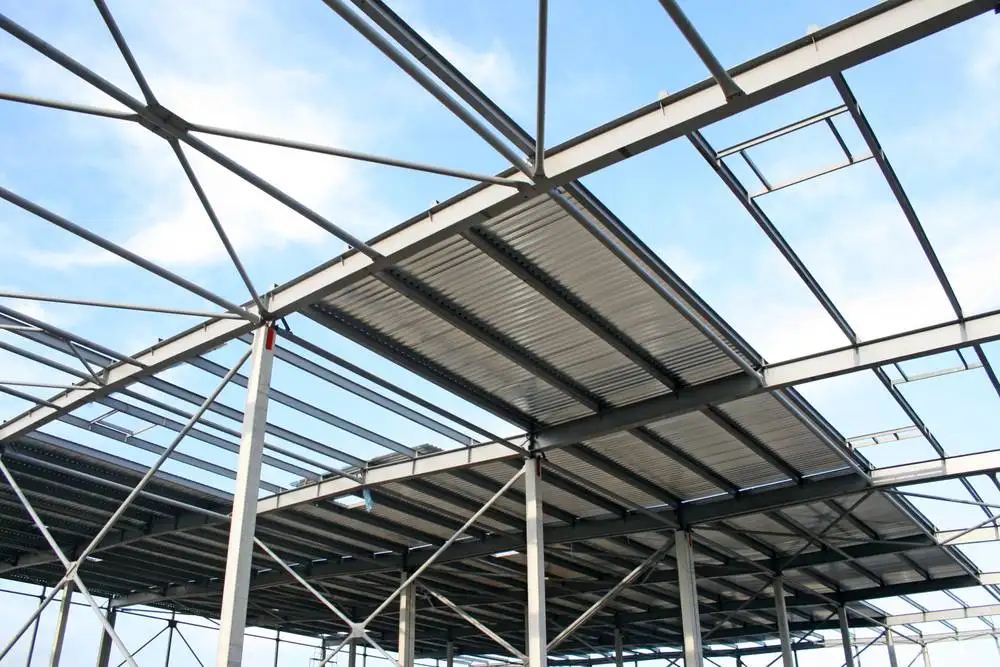
Metal roofing systems, known for their versatility and durability, are available in a range of materials, including stainless steel, corrugated galvanized steel, and alloys of aluminum or zinc. This selection offers architects and building owners the flexibility to choose from various aesthetic designs, patterns, and colors to meet specific architectural requirements.
A key advantage of metal roofing is its inherent fire resistance, making it a safe choice for commercial applications. Additionally, these roofing systems are renowned for their strength and longevity, capable of enduring harsh environmental conditions while maintaining structural integrity.
Another notable feature of metal roofs is their adaptability to both flat and pitched roof configurations. This flexibility distinguishes metal roofing from some other commercial roofing materials, which may be limited to flat roof applications. Using metal roofing on sloped surfaces increases its versatility across building designs.
Cool Roofing
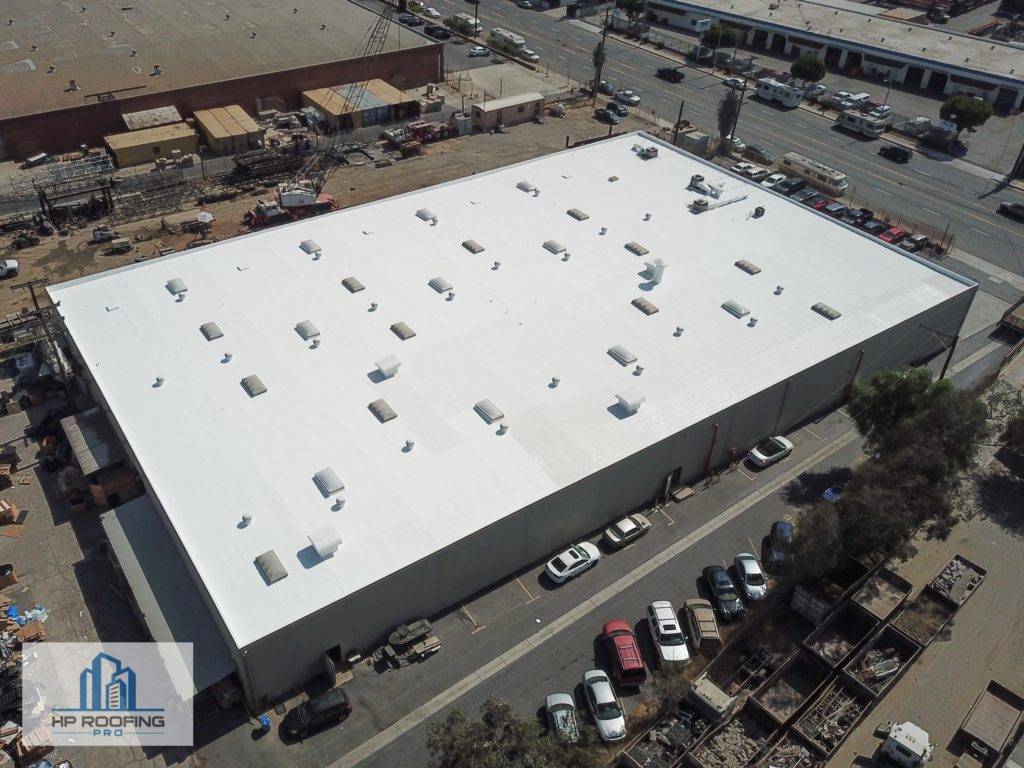
In warm climates, industrial buildings stand to gain significantly from the adoption of cool roofing systems. These systems are engineered to have high solar reflectance and thermal emittance, thereby reflecting a substantial portion of sunlight and emitting absorbed heat more efficiently than traditional roofing materials. This design translates into a lower heat gain for the building, leading to reduced energy consumption, cost savings, and environmental benefits.
Specialized industrial roofing companies are equipped to retrofit nearly any existing roof into a cool roof. This process typically involves the application of a reflective coating over the existing roofing substrate. While traditional cool roof coatings are predominantly white, reflecting the maximum amount of sunlight, advancements in material science have enabled the development of cool roof coatings in darker hues, expanding aesthetic options without compromising performance.
The installation of a cool roof can lead to a marked decrease in air conditioning needs, directly contributing to lower utility bills. This reduction in energy demand, especially during peak periods, is instrumental in alleviating stress on the power grid and helping prevent power outages.
Beyond energy savings, cool roofing systems contribute to the extension of the roof’s lifespan. The reduced thermal stress on the roofing material minimizes the likelihood of degradation and wear. Additionally, the reflective coating enhances the roof’s waterproofing capabilities, thereby reducing the potential for leaks.
From an environmental standpoint, cool roofs offer multiple advantages. By lowering energy consumption and the need for air conditioning, they play a vital role in reducing the urban heat island effect, thereby contributing to cooler local temperatures. Furthermore, cool roofing practices support sustainable building principles by allowing the existing roof to remain in place, reducing waste and landfill burden.
Cool roofing systems offer a comprehensive solution for industrial buildings in warm climates, addressing energy efficiency, and environmental sustainability, and extending the functional life of the roof.
Lifespan of Industrial Roofing
Several factors affect how long your commercial roofing will last. The weather, the type of roofing materials, and the maintenance schedule have some of the largest effects on the lifespan of your roof.
Weather
The weather has a large effect on the lifespan of your industrial roof. High temperatures can damage the sealant materials. High heat and humidity can make the roofing materials swell and weaken.
If you have air conditioning units on the roof, frequent trips to check the equipment can damage the roof.
Freezing weather can create heavy ice that can damage the roof. Water that freezes and thaws repeatedly can cause leaks.
Roofing Materials
Metal roofs typically last the longest. A metal roof can remain in service for 40 years or more.
An EPDM roof has a life expectancy of 22-35 years. PVC is similar, with a lifespan of 20-30 years. A modified bitumen roof should give you around 20 years of service.
A built-up roof normally lasts for 15-20 years. You may get up to 30 years with regular maintenance and repairs.
TPO roofing will usually give you 10-20 years of service. With careful maintenance, it can last up to 30 years.
The lifespan of an acrylic cool roof coating like the RainArmor system generally ranges between 10 to 15 years and longer, depending on various factors such as the quality of the application, the environmental conditions, and the level of maintenance it receives.
Roof Maintenance
Routine maintenance inspections help you get the most life from your commercial roof. You’ll find any problems before they get worse. Simple tasks like cleaning the gutters can prevent problems from starting.
Inspections, cleaning, and repairs when necessary keep your roof in the best possible condition.
Other Considerations for an Industrial Roof
Your budget, the location of your building, and your business needs are important considerations when you’re planning a roofing installation. Your budget is obviously a large factor. Looking at the features of each type of roofing material and their typical lifespans will help you get the best value.
The location of your building affects what type of roof will work best. You should think about factors like the direction the building faces, if any areas are shaded and if the building is located in a wildfire zone.
The way you use your building is another consideration. For example, a warehouse may have different needs than an office building.
Finding the Right Roofing Contractor
Quality roofing materials are important. A quality installation is just as important for ensuring you get the best value from your industrial roofing.
HP Roofing Pro has provided quality roof repair, maintenance, and installation services to our clients since 2017. We’ll work with you to find the best roofing solution for your business.
Contact us today to schedule a free inspection. We look forward to serving you with all your industrial roofing needs.
Recent Posts
Recent Posts
The Ultimate Guide to Metal Roof Coating
Do you have any questions?
Contact us at The HP Roofing PRO office or submit a business inquiry online
Contact Us